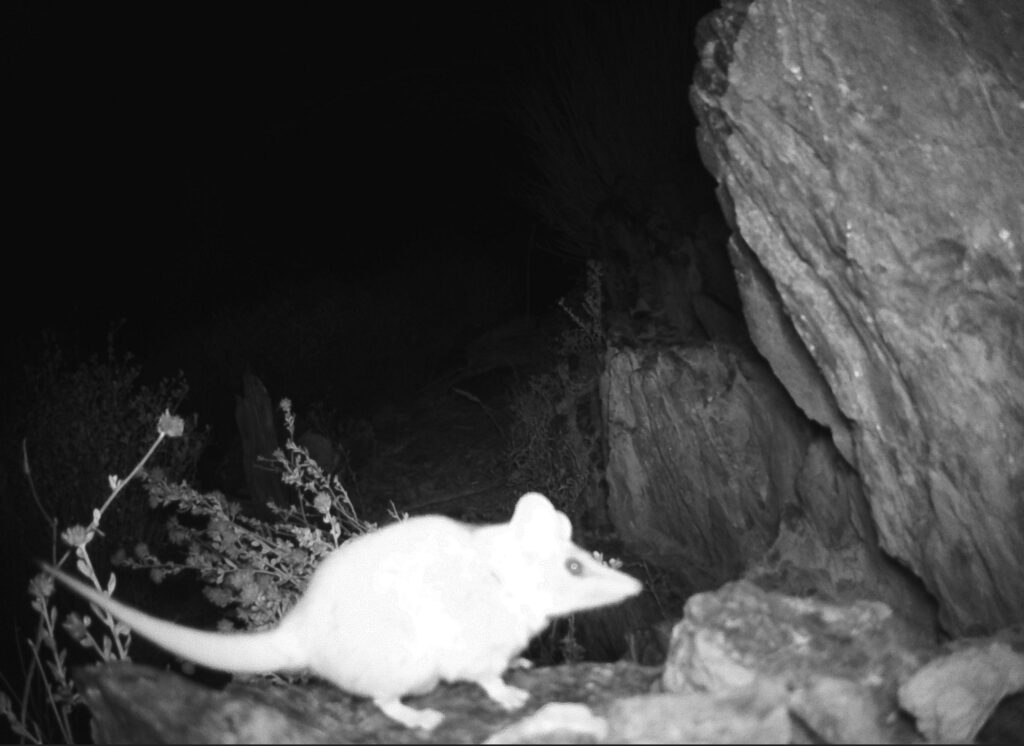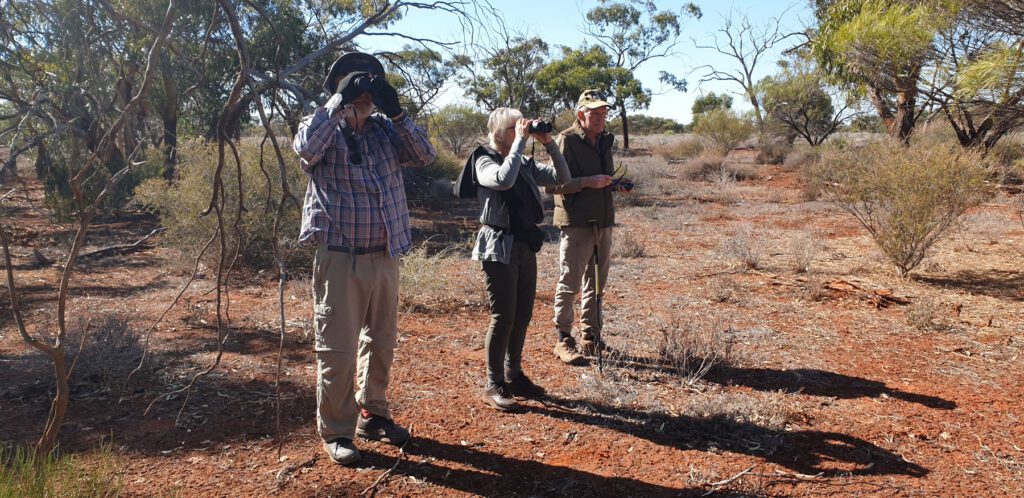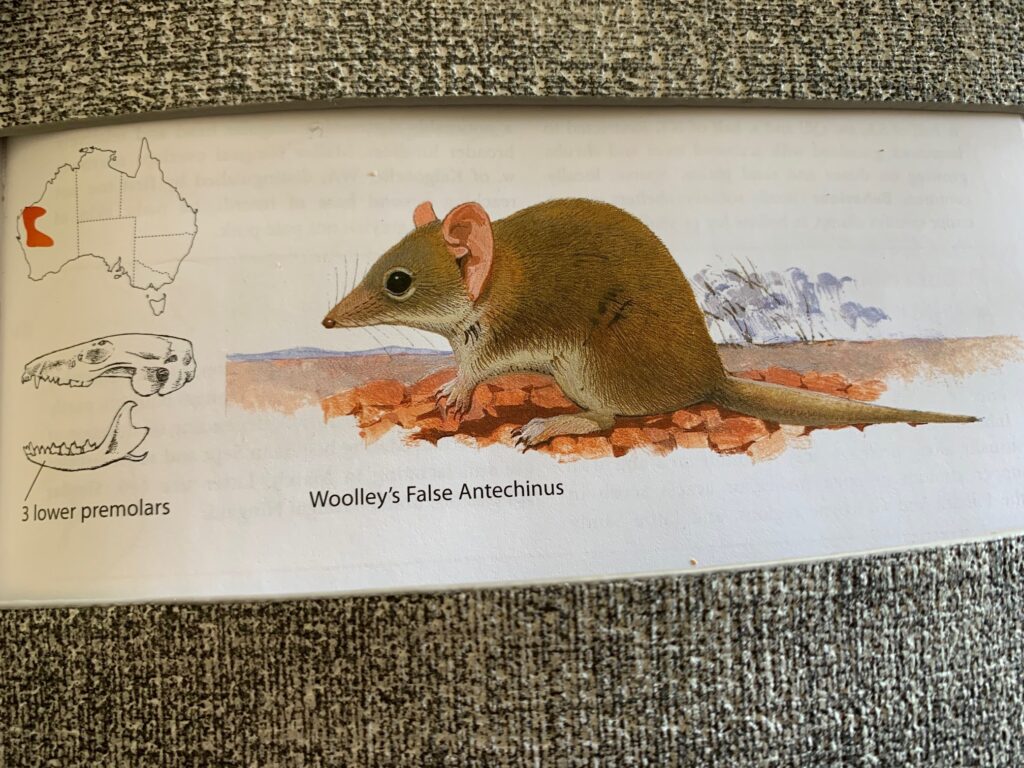Ecologists discover rare marsupial at threatened ecological site in Western Australia
Business Services, News, Social & Environmental Services
Business Services, News, Social & Environmental Services
This article was contributed by Carbon Neutral.
The rare marsupial Woolley’s False Antechinus (scientific name Pseudantechinus woolleyae) has been spotted on night cameras at Hughes Block in the northern wheatbelt region of Western Australia.
Consultant ecologists Dr Nic Dunlop and Alison Goundrey were amazed to see the rarely sighted marsupial on the motion-sensitive cameras in October 2023.
“This is an unexpected and wonderful outcome,”
Ms Goundry
The ecologists are part of a volunteer team from the Carbon Neutral Citizen Science Program operating within the Yarra Yarra Biodiversity Corridor—a Carbon Neutral plantation region designed to sequester carbon and part of the first project in Australia to achieve premium Gold Standard certification.

So rarely sighted since its recognition in 1988, the Woolley’s False Antechinus has not yet been given a common name or conservation status. The discovery is thought to be the first record of the marsupial in the Wheatbelt region.
“As far as we know this may be the first time it has been recorded in the wheatbelt. They were found at Karara prior to mining activity and it is thought to be present in the Mungada Ridge National Park some 65 kms further inland from the Perenjori Hills.,” said Dr Dunlop.

The marsupial was captured on camera in the Hughes Block area, which recently became one of 58 areas listed as a Threatened Ecological Community (TEC) in Western Australia under the Biodiversity Conservation Act.
Woolley’s False Antechinus is a small, carnivorous marsupial, eating; insects, scorpions, centipedes and small lizards.
They are found in small, isolated populations in the arid zone of the Mid-west in the rangelands at Jack Hills, Mt Jackson and Bungalbin Hill.
Additionally, we have also confirmed the presence of the threatened species, Mallee Fowl (scientific name Leipoa ocellata), in the Hughes Block area. This is a significant finding as it adds another layer of ecological importance to this region.
The rarely spotted marsupial is thought to be likely a threatened species due to the destruction of its natural habitat from extensive iron ore mining in the region.
Ray Wilson, Chief Commercial Officer at Carbon Neutral, said the image captured of the rare species has motivated the organisation to act.
“Carbon Neutral owns and has a stewardship responsibility to manage 1,000 ha of remnant vegetation on Hughes Block adjoining parts of its extensive biodiverse carbon sink plantings in the north-eastern wheatbelt,” he said.
“The area has been declared a critically endangered ecological community and the intention is to create a sanctuary to protect the Woolley’s Pseudantechinus and other threatened species.”

The news comes on the heels of the newly struck natural repair scheme between the Federal Government and the Greens party earlier this month.
The nature repair bill looks to create a market to encourage private spending on projects that protect and restore biodiversity.
“Carbon Neutral will look to the newly legislated Nature Repair Market framework to mobilise funding through biodiversity credits to cover the sanctuary conservation works,” said Mr Wilson.
Minister for the Environment and Water, Tanya Plibersek, called the bill an exciting change to see extra investment in protecting our environment. “Our nature repair market will make it easier to invest in restoring nature. It will support landholders to do things like replanting koala habitat, excluding livestock to repair natural marshland or eradicating feral species,” she said.
About the Yarra Yarra Biodiversity Corridor
The Yarra Yarra Biodiversity Corridor is the largest biodiverse reforestation carbon sink in Australia. Since in 2008, more than 30 million mixed native species of trees and shrubs have been planted across 18,000 hectares of land. In 2023 the project expanded to nearly 21,000 hectares—roughly 5.5 times the size of the Melbourne CBD.
About Carbon Neutral
Carbon Neutral is one of the longest-standing carbon offset providers in Australia. For more than two decades Carbon Neutral has worked with global organisations and individuals to help them reduce their impact on the planet.
This is an article from a SustainabilityTracker.com Member. The views and opinions we express here don’t necessarily reflect our organisation.